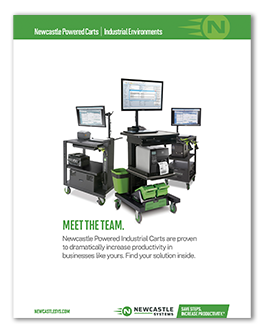The "go green" movement may have seemed like a passing fad many years ago when it first entered mainstream consciousness. To some, it resembled something that brought to mind the free-spirited and anti-establishment countercultures of the late 1960s more than it did a modern step toward environmentally responsible living. Despite skepticism, sustainable living has become an integral part of our daily lives.
Principles and standards that guide eco-friendly ways of living and doing business are often referred to as "lean" principles, and the term is used most frequently in the manufacturing industry. Essentially, operating under lean concepts means you're trimming the fat, so to speak, and reducing the amount of by-products and waste generated by your company during the production process. Originally introduced by Japanese automaker Toyota Production Systems, lean manufacturing focuses on eliminating everything that goes into creating your product, from employee labor to raw materials, that does not add value in some way for your customers.










